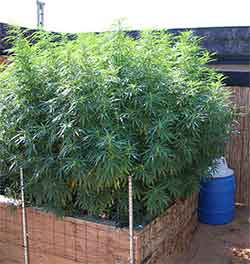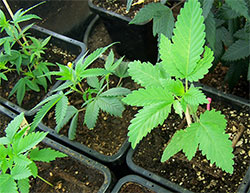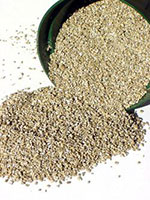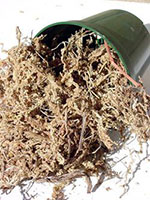Cloning Cannabis |
Cloning cannabis plants has become a popular and effective method for growers to reproduce and maintain specific strains with desired traits. By replicating a genetically identical copy of a "mother" plant, growers can ensure consistency in the traits, potency, and overall quality of the harvested cannabis. This article will delve into the science behind cannabis cloning, explore the benefits it offers to cultivators, provide a step-by-step guide for successful cloning, discuss best practices for maintaining healthy clones, address common challenges and troubleshooting techniques, highlight advanced cloning techniques and innovations, and touch upon the ethical and legal considerations associated with cloning cannabis. Whether you're a seasoned cultivator or an aspiring grower, this comprehensive guide will equip you with the knowledge and techniques needed to master the art of cannabis cloning.
|
Introduction to Cannabis Cloning Techniques
What is Cannabis Cloning?
Cannabis cloning is like playing mad scientist with your favorite plants. Instead of starting from scratch with seeds, cloning allows you to create exact replicas of your most prized cannabis plants. It's like having a twin, but in plant form. It's a way to preserve the genetic makeup of a particular strain and ensure consistent results with every new generation.
History and Evolution of Cannabis Cloning
Cannabis cloning has been around for centuries, although ancient stoners didn't have the fancy tools and techniques we have today. They may have simply taken cuttings from a favorite plant and stuck them in the ground to see what would happen. And lo and behold, new plants sprouted, and the cloning game began.
Over time, growers have refined the cloning process, experimenting with different methods and perfecting the art of creating genetic replicas. Nowadays, you'll find cutting-edge cloning setups complete with special lighting, humidity control, and precision tools. We've come a long way since ancient times, my friends.
Here are a few key points about cloning cannabis plants:
- Cloning is a way to create genetically identical copies of a cannabis plant. It's done by taking cuttings from a 'mother' plant and rooting them to grow new plants.
- To take a cutting, snip off a branch that has 2 nodes where leaves emerge. Cut just below the node and remove all but the top leaves.
- Dip the cutting in cloning gel or powder, which contains hormones to stimulate root growth. Plant the cutting in starter soil or a cloning plug.
- Keep the cutting warm (around 70F - 75°F) and humid, with gentle airflow, until roots emerge in 1-3 weeks. A dome works well. Don't overwater while waiting for roots.
- Once rooted, the clone can be transplanted into its final growing medium. Provide 18+ hours of daily light in the vegetative stage until it's a decent size.
- Clones allow growers to propagate elite strains indefinitely. Clones are the same sex as the mother and will grow the same characteristics.
- Cloning skips the seedling stage, so clones may mature and start flowering faster than plants grown from seed.
- Take sterile precautions when cloning to avoid transmitting diseases. Label clones carefully to keep track of genetics.
Let me know if you need any other cannabis cloning tips! It can take some practice but is a very useful technique for cannabis cultivation. How To Clone Successfully.
The Science Behind Cannabis Cloning
Understanding Plant Genetics and Reproduction
Alright, let's get a little science-y here. Plants, including cannabis, reproduce sexually, just like humans do (although, thankfully, with less drama). This sexual reproduction involves the union of male and female plants, resulting in seeds that carry a mix of genetic traits from both parents.
But when we talk about cloning, we're talking asexual reproduction. No, it doesn't involve candlelit dinners and Barry White music. Instead, it means we're creating new plants by taking cuttings from existing ones, bypassing the whole seed and sex thing. These cuttings, often referred to as clones, are genetic replicas of the mother plant.
The Importance of Phenotype and Genotype in Cloning
Now, don't get all intimidated by those fancy-sounding words. Phenotype and genotype are just fancy terms for the physical traits and genetic makeup of a plant, respectively.
When we clone cannabis, we want to preserve both the phenotype (the visible traits) and genotype (the genetic blueprint) of the mother plant. This ensures that the offspring will have the same characteristics, like color, smell, and potency. Think of it as keeping the family resemblance strong.
|
Benefits and Advantages of Cloning Cannabis Plants

|
Maintaining Genetic Consistency in Cannabis Strains
With cloning, you can keep the genetic party going. Rather than relying on unpredictable genetics from seeds, cloning allows you to maintain the same characteristics and qualities that made you fall in love with a particular strain in the first place. It's like having a guaranteed good time every time.
Rapid and Cost-Effective Production
Cloning can accelerate the cannabis production process faster than Sonic on roller skates. Instead of waiting for seeds to germinate and grow, cloning allows you to skip that whole waiting game. Plus, since you're not buying new seeds every time, it can be a budget-friendly option. Who doesn't love saving some green while growing some green?
|
Preserving Desirable Traits and Characteristics
You know that feeling when you find that perfect strain with all the right traits and characteristics? Cloning lets you keep those goodies around for as long as you want. You can preserve the desirable qualities of the mother plant and enjoy them in future generations. It's like winning the genetic lottery but without the cheesy game show host. |
Selecting the Right Mother Plant
Choosing the mother plant is like picking a partner for a cloning adventure. You want to select a healthy and vigorous plant with the traits you want to pass on. Don't be fooled by flashy looks alone, though. Look for strong growth, vibrant leaves, and an overall healthy appearance. Beauty may be skin deep, but a good clone starts with a sturdy mother.
Preparing the Cloning Environment
Creating a comfortable environment for your clones is key to their success. You'll need to provide the right balance of light, temperature, humidity, and air circulation to keep them happy and thriving. It's like setting the mood for a romantic dinner, minus the candles and soft music (unless that's your thing, of course). Just remember, clones prefer a cozy and stable environment.
|
Step-by-Step Guide to Successfully Clone Cannabis

|
Techniques for Taking and Preparing Cuttings
It's time to get hands-on with those scissors. Taking cuttings involves carefully snipping off small branches from the mother plant. You'll want to make clean cuts, removing any excess leaves or growth hormone to keep things neat and tidy. Think of yourself as a plant hairstylist, giving your clones a fresh trim for their big debut.
Rooting and Transplanting Clones
Rooting is the crucial step where your clones develop their own roots and start growing on their own. You can use different methods like rockwool cubes or water propagation to encourage root growth. Once those roots are nice and established, it's time to transplant your babies into their new homes. Treat them gently, like delicate little princesses, and watch them thrive.
And there you have it, folks! Your crash course in cloning cannabis. Now, go out there and become the master of genetic replication. Happy cloning!Best Practices for Maintaining Healthy Clones
Providing Optimal Lighting and Temperature Conditions
When it comes to cloning cannabis, providing the right lighting and temperature conditions is crucial for healthy growth. Clones need consistent light to promote photosynthesis and encourage root development. Ensure they receive around 18 hours of light per day, mimicking the vegetative stage of growth. LED lights are often preferred as they emit the ideal spectrum for cloning.
Temperature also plays a significant role in clone health. Aim for a temperature between 70-80°F (21-27°C) during the day and slightly lower at night. Maintaining consistent temperatures will prevent stress and promote strong roots.
Appropriate Nutrient and Watering Strategies
Proper nutrient and watering strategies are essential for clone success. Start with a well-draining, sterile rooting medium to prevent waterlogging and disease. Use a balanced, low-strength nutrient solution in the early stages, gradually increasing the concentration as clones mature. Remember not to overfeed, as clones have delicate root systems.
When it comes to watering, it's essential to strike a balance. Keep the rooting medium moist but not soaked. Overwatering can lead to root rot, while underwatering can cause stress. Monitor the moisture levels consistently and adjust as needed.
Pest and Disease Prevention and Management
Preventing pests and diseases is crucial for healthy clones. Maintain a clean and sanitized growing environment, regularly inspecting the clones for any signs of insects or diseases. Quarantine new clones to prevent introducing pests to your garden.
Integrate IPM (Integrated Pest Management) techniques, such as using beneficial predators or organic pest control methods. Neem oil or insecticidal soaps can also help eliminate common pests. Keeping a vigilant eye and addressing any issues promptly will help maintain healthy clones.
Common Challenges and Troubleshooting in Cannabis Cloning
Rooting Failure and Strategies for Overcoming it
Rooting failure can be frustrating, but there are strategies to overcome it. One common reason for failure is improper cutting technique. Ensure you make clean, diagonal cuts just below a node, removing any excess leaves. Using a rooting hormone can also stimulate root growth.
Another factor to consider is humidity. Clones require a humid environment to support root development. Try using a humidity dome or misting the clones regularly to maintain moisture levels.
Mold and Fungus Issues in Cloning
Mold and fungus can quickly become a problem in cloning environments. To prevent this, maintain proper air circulation and remove any decaying leaves or plant material promptly. Ensure the humidity levels are not excessive, as high humidity can encourage mold growth.
Using a sterile rooting medium and keeping the clones spaced out will also reduce the chances of mold and fungus issues. If mold does appear, consider using an organic fungicide to control the spread.
Addressing Nutrient Deficiencies in Clones
Nutrient deficiencies can occur in clones, causing stunted growth or discoloration. To address this, start with a balanced nutrient solution and gradually increase the concentration. Monitor the pH levels to ensure optimal nutrient uptake. If deficiencies persist, consider adding specific micronutrients based on the symptoms observed.
Advanced Techniques and Innovations in Cannabis Cloning
Aeroponic and Hydroponic Cloning Systems
Aeroponic and hydroponic cloning systems are advanced techniques that offer precise control over nutrient delivery and root development. Aeroponic systems mist the clones' root zone, providing oxygen and nutrients. Hydroponic systems immerse the clones' root zone in a nutrient solution. Both methods promote rapid and vigorous root growth, resulting in healthy clones.
Tissue Culture and Micropropagation
Tissue culture and micropropagation are cutting-edge techniques used for mass production and genetic preservation. Tissue culture involves growing clones in a sterile laboratory environment, promoting disease-free plantlets. Micropropagation utilizes tiny plant parts to generate numerous clones rapidly. These techniques allow for genetic uniformity and preservation of valuable strains.
Hormone and Additive Applications for Enhanced Cloning
Various hormones and additives can enhance cloning success. Rooting hormones, such as auxins, stimulate root growth and can be used as a dip or applied directly to the cutting. Beneficial additives like seaweed extracts or mycorrhizal fungi can improve overall plant health and root development. Experimenting with different hormones and additives can enhance your cloning success rate.
Ethical Considerations and Legal Aspects of Cloning Cannabis
Cloning cannabis raises important ethical considerations and legal aspects. While cloning itself is not inherently unethical, it is essential to consider the source of the clone and its impact on biodiversity and genetic diversity. Cloning from reputable sources and avoiding the illegal propagation of protected or copyrighted strains is crucial.
Furthermore, the legal status of cannabis cultivation and cloning varies globally. It's important to abide by local laws and regulations regarding cannabis cultivation, including obtaining the necessary permits and licenses. Being aware of the legal framework surrounding cloning is essential for responsible and lawful cultivation practices.In conclusion, cannabis cloning is a powerful tool for growers seeking consistency, efficiency, and quality in their cannabis cultivation endeavors. By understanding the science behind cloning, following best practices, and implementing advanced techniques, cultivators can unlock the potential of cannabis genetics and push the boundaries of what is possible. However, it is important to navigate the ethical considerations and legal aspects surrounding cannabis cloning to ensure responsible and compliant practices. With the information provided in this article, you are equipped with the knowledge to embrace the world of cannabis cloning and take your cultivation skills to new heights. Happy cloning! |

Vermiculite |

Perlite |

Sphagnum Moss |
FAQ
Is cannabis cloning legal?
Cannabis cloning legality depends on the jurisdiction and the specific regulations governing cannabis cultivation. It is essential to research and understand the laws and regulations in your region before engaging in cannabis cloning.
Can I clone any cannabis plant?
In theory, any cannabis plant can be cloned. However, it is important to select healthy and vigorous mother plants that exhibit the desired traits you wish to replicate. Weak or diseased plants may not yield successful clones.
How long does it take for cloned cannabis plants to root?
The rooting time for cannabis clones can vary depending on various factors such as environmental conditions, strain, and cloning techniques used. On average, it takes around 7-14 days for clones to develop roots and become ready for transplanting.
Can I clone a clone?
Technically, it is possible to clone a clone, and it is commonly done in cannabis cultivation. However, it is important to note that with each subsequent cloning generation, there is a potential for genetic degradation and reduced vigor. To maintain the highest quality and genetic stability, it is advisable to periodically refresh your clone stock from the original mother plant. |






